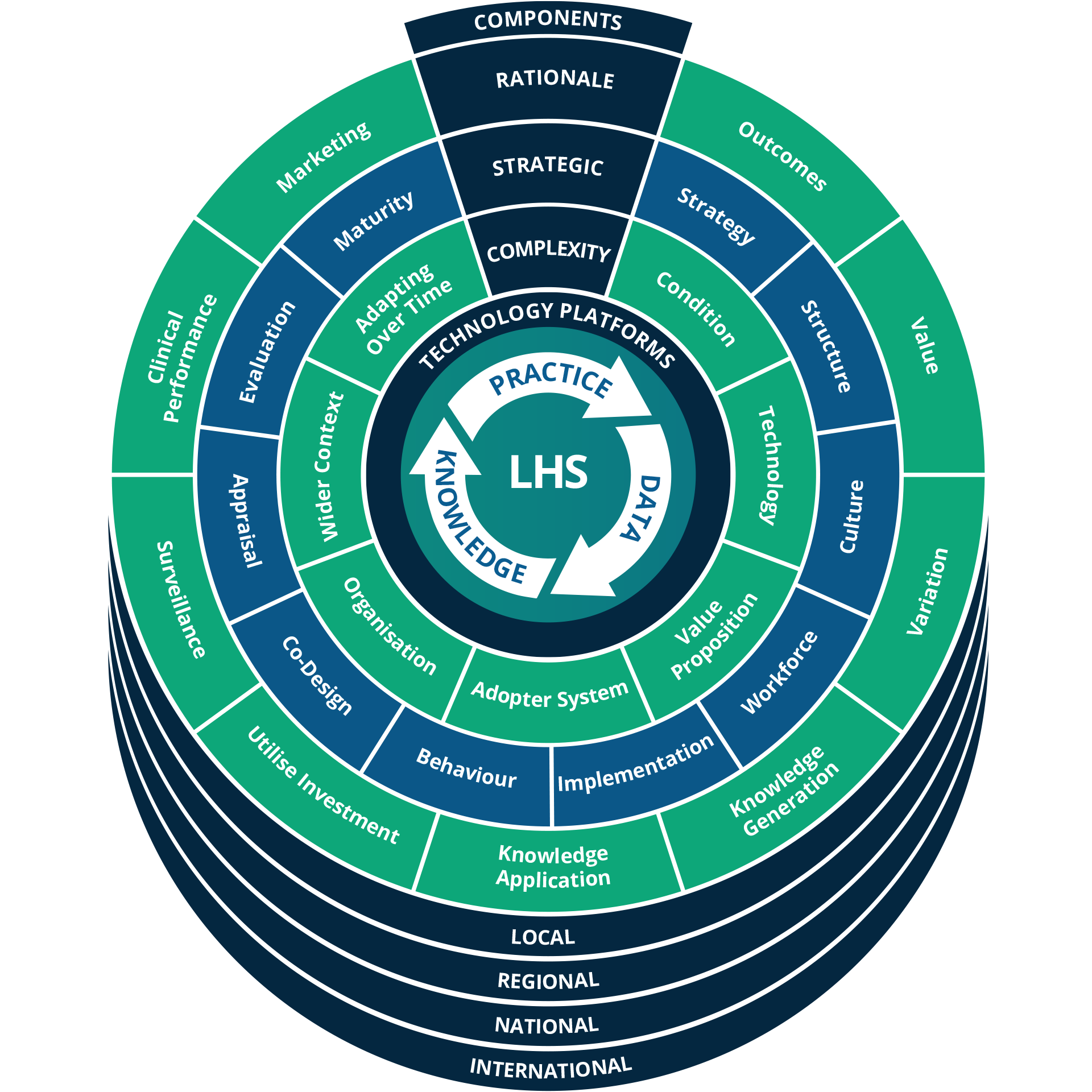Many years before the concept was applied to healthcare, a learning organisation was defined as “an organization skilled at creating, acquiring, and transferring knowledge, and at modifying its behaviour to reflect new knowledge and insights” [3].
The idea was introduced to healthcare in 2007 by the United States Institute of Medicine (IoM, now the National Academy of Medicine) [4], which later defined it as a system in which “science, informatics, incentives, and culture are aligned for continuous improvement and innovation, with best practices seamlessly embedded in the delivery process, [with] patients and families active participants in all elements, and new knowledge captured as an integral by-product of the delivery experience” [5].
On the face of it, the definitions above are comprehensive, but not very specific. Almost any health system can claim to be a Learning Health System, in that there are scientific processes, informatics and incentives in play. Knowledge is usually captured in some form or other, and most systems at least claim to seek improvement. However, there are few, if any systems in which these elements are fully aligned for continuous improvement and innovation.

Figure A The Learning Health System Framework.
Importantly, the focus is on collecting data to generate knowledge and applying it to improve practice (the hub of Figure A).
In most cases, data come from Electronic Health Records, clinical registries or other routinely collected sources. Data are analysed by communities of practice or by a range of quantitative methods, often devised by academic health centres, public bodies or commercial organisations [6]. The knowledge generated is then used to change practice by informing deliberative processes or by directly feeding decision support systems.
Learning Health Systems have been called many different things, including data hubs, living labs, innovation or informatics hubs, learning networks, learning laboratories, community-clinician participatory data healthcare research, data driven improvement initiatives, interventional informatics, practice-based data networks, circular data-driven healthcare, Learning Healthcare Systems and Rapid Learning Health Systems [6].
It is important to recognise that a Learning Health System is an ongoing journey rather than a destination; the very concept of a Learning Health System is that there is always something new to learn [7]. They conduct similar activities regardless of scale, giving them a fractal property. This means that many elements will be reusable as Learning Health Systems scale up. Figure A shows that each of the elements considered in this report can be co-designed at the local, regional, national and international level.
There is necessarily an interdisciplinary science developing around the Learning Health System concept, evidenced by the formation of new university departments [8], conferences [9, 10] and an academic journal [11].
This website contains links to many Learning Health System Projects around the world.
